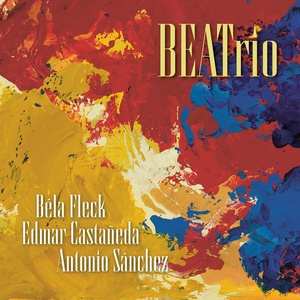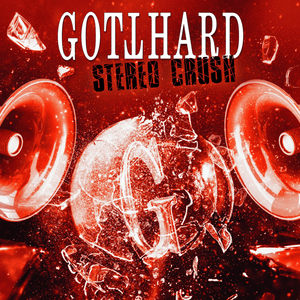Album review overview: Hangover Paradise, Gotthard and more
Dozens of new albums arrive at Maxazine’s editorial staff every week. There are too many to listen to, let alone review them. It ensures that too many albums are left behind. And that’s a shame. That is why today we post an overview of albums that arrive at the editors in short reviews.
Chrissy Johnson – Shake Where You’re Steady
On her second album, “Shake Where You’re Steady,” Chrissy Johnson creates an atmospheric mix of folk and pop, with occasional touches of jazz. Her clear voice forms the beating heart of a series of delicate songs that feel both accessible and personal. The album opens cautiously with “Greatest Abandon,” but soon the arrangements bloom in the playful “Anything,” where brass and rhythm work beautifully to complement her soft vocals. The production is understated and tasteful, allowing Johnson’s lyrics the space to connect. In songs like “Runaway Love” and “Only Now,” she touches on pure vulnerability without becoming pathetic. It’s these moments of stillness that give the album its strength. In contrast, there are stronger narratives like “Strange Fire” and the bluesy “Backwater Blues,” which showcase her talent as a storyteller. The closing track “Pretty Little Heart” brings everything back to the essentials: a voice, a song, a feeling. “Shake Where You’re Steady” isn’t a loud album, but one that quietly gets under your skin. Chrissy Johnson delivers a mature and layered work that remains captivating, especially for those who take the time to listen. (Norman van den Wildenberg) (7/10) (Own production)
Béla Fleck, Edmar Castañeda, Antonio Sánchez – BEATrio
B(éla), E(dmar) and A(ntonio) form a T(rio). A remarkable trio in which Castañeda’s harp and Fleck’s banjo are the main instruments, driven by drummer and ‘project leader’ Sánchez. A banjo: then this must be bluegrass. Yes and no. Yes, there are certainly bluegrass influences – for example, in “Countryside” – but the music that the trio has immortalised on this record explores more dimensions in jazz. The playing of Castañeda is decisive: the harpist uses his left hand for the bass tones, while the right hand harmonises with the melody that Fleck plays on the five-string banjo. It results in a unique sound. In a track like “Kaleidoscopes” you can hear how the harp and banjo follow and strengthen each other: sometimes in unison, until they swirl around each other more in a dialogue. Listen especially to the almost surgical precision with which the musicians sense each other flawlessly: live, this must be a sensation. The way Castañeda follows the nimble-fingered Fleck on the banjo is admirable. By the way, the role of Sánchez should not be underestimated: in “Three Is Not A Crowd”, he gets to shine. But this album is not merely a showcase of technical skills. On the contrary, the trio manages to deliver a very varied album. The melodious “Cloak And Dagger” and “Whispers Of Resilience” with a delightful groove are true gems. (Jeroen Mulder) (9/10) (Thirty Tigers)
Gotthard – Stereo Crush
This Swiss band takes its name from a mountain range in their homeland, although most people will think of the famous tunnel. Hard rockers will mention the band, which enjoyed quite some success in the early 90s, when asked: what do you think of when you hear Gotthard? A while ago, frontman Steve Lee died in a traffic accident, but the band continues to release records and has found a good replacement in Nic Maeder. His voice bears a fair resemblance to Lee’s. Yet it must be said that this new “Stereo Crush” is the least impressive record with Maeder on vocals. That has nothing to do with his contribution, but the songs are simply not as strong as we are used to from Gotthard. The album is also a lot softer, with a few exceptions. Perhaps the band is trying to win new fans. Furthermore, the band likes to do a cover, which is now “Drive My Car” by The Beatles. Previously, they did “Come Together” a lot more convincingly. It sounds okay, but for longtime fans, it will not be an album they’ll often return to. (Rik Moors) (6/10) (Reigning Phoenix Music)
Moonlight Haze – Beyond
“Beyond” is the fourth studio album from Moonlight Haze. This Italian band makes symphonic, melodic metal. The catchy rhythm, the “verse-chorus structure”, and the relatively simple lyrics make for accessible tracks. The backing vocals are sometimes a bit predictable, but the combination of voices is fine. All songs are in English, only “L’Eco Del Silenzio” contains a mixture of English and Italian. The emotion in the Italian singing is more clearly audible, and the music seems more intense. The variation in vocals is greatest in “Time To Go.” You hear not only classically trained and pop-rock vocals, but also some grunts. Instrumentally, the contrasts are also greater here. These contrasts could have been larger in more songs. The distribution between pop/rock versus classically trained vocals (by Chiara Tricarico) aligns with the accessible music. The metal is not too heavy, the light classical elements don’t come to the foreground. This makes “Beyond” suitable for a wide audience. Performed live, there will certainly be interaction with fans. (Esther Kessel-Tamerus) (7/10) (Scarlet Records)
Hangover Paradise – Lost In Reality
Bert Heerink. Whatever you think of the man, his resume is impressive with Vandenberg, Kayak, Jan Akkerman and The Pink Floyd Project. That’s what this is about. The Drenthe prog formation Hangover Paradise has now embraced him as the lead singer on their third studio album, “Lost In Reality.” Heerink is thus also the third singer, while the formation is otherwise constant in its lineup. The two keyboardists, Henk and Peter Zwerus – also the lyricist – leave a firm stamp on the sound of Hangover Paradise, but at the same time, we’re doing the rich guitar playing of Ritchie Saimima an injustice: that guitar is prominently present and not just in the solos. The opening track, “Never Again”, is immediately a strong entry, reminiscent of the more robust pieces of IQ. And there are more parallels with the British neo-proggers around Mike Holmes: just like IQ – ‘forty years of prog nonsense’ – Hangover Paradise likes to poke fun at the genre and its Canterbury clichés. In “The Story Of Prog” we are presented with a story about quests, demons, dragons and knights, naturally in a track that is built up of various parts, with a good guitar riff in the intro, the driving rock rhythm under the first verses and chorus, but which after a harpsichord break (!) transitions into a different tempo to end in an epic finale, including mellotron-like choir bed under the final synth and guitar solos. From the cookbook that also contains the recipes for the early work of Marillion and Rush; they are clear influences. With “Lost In Reality,” Hangover Paradise delivers an excellent album that lovers of the more old-school neoprog – think about that for a moment – will thoroughly enjoy. (Jeroen Mulder) (8/10) (Hangover Paradise)
![]()










